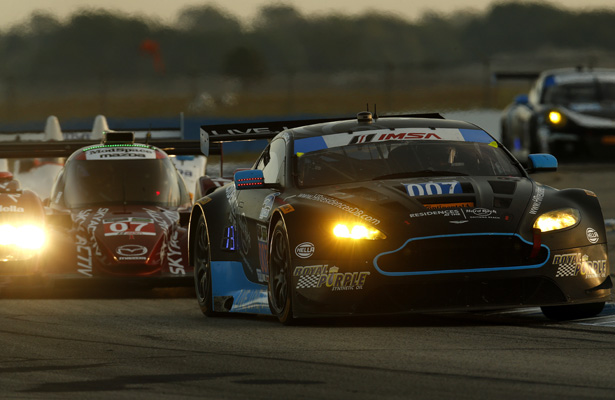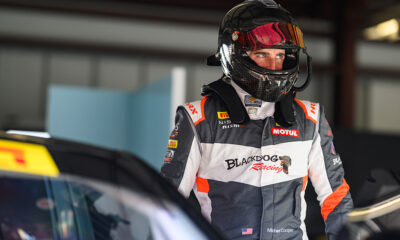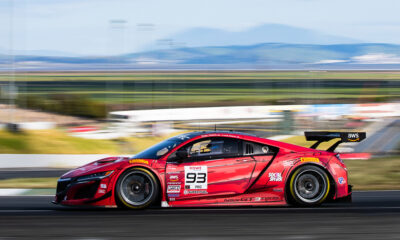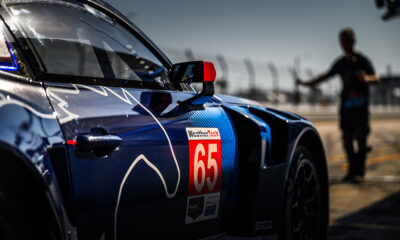
Photo: IMSA
It’s been three months since the Twelve Hours of Sebring, but for the first time, all four classes of the TUDOR United SportsCar Championship reunite for this weekend’s Sahlen’s Six Hours of The Glen.
The third round of the Tequila Patron North American Endurance Cup will likely prove to be one of the most crucial races for IMSA and its officiating staff in the wake of controversial calls to its only two other all-class races to date.
January’s series-opening Rolex 24 at Daytona produced intense on-track battles, but it was a post-race penalty reversal on the Level 5 Motorsports Ferrari 458 Italia GT3, some four hours after the race, that made the headlines and raised questions over officiating procedures in the very first event.
Less than two months later at Sebring, the GT Daytona class was again in the spotlight, this time for an incorrect penalty called on the Alex Job Racing Porsche 911 GT America, which was misidentified for a factory GT Le Mans-class Porsche 911 RSR that went on to take victory without serving its penalty.
To IMSA’s credit, the four races since have been relatively uneventful, thanks in part to the sanctioning body’s swift actions. Additional measures have been put into place, including a third driver advisor in race control, upgrades in video review equipment, and the enforcement of each car number being visible in on-board cameras.
It will be put to the test this weekend. A total of 55 cars are entered for Sunday’s race, which around the high-speed and unforgiving 3.4-mile Watkins Glen circuit, will likely result in one of the more contact-heavy races this season. There will be yellows and there will be penalties, but all eyes will be on how those situations will be handled.
The officiating hasn’t been the only thing in the spotlight as of late, however. With DPs having won four of the opening five races, Balance of Performance remains a key talking point, while a few questionable driver ratings, particularly in GTD, has created controversy in the Pro-Am class.
As with any new series, there are always growing pains. But with the TUDOR Championship, there are also positive signs that shouldn’t be overlooked or overshadowed by what some have deemed to have been a challenging start.
The bottom line is that nobody wants a repeat of Daytona and Sebring. If the officiating staff can walk away from the weekend without being in the headlines, it will help put those memories in the rear-view mirror and set forth a new foundation to build on in the races and years to come.

























